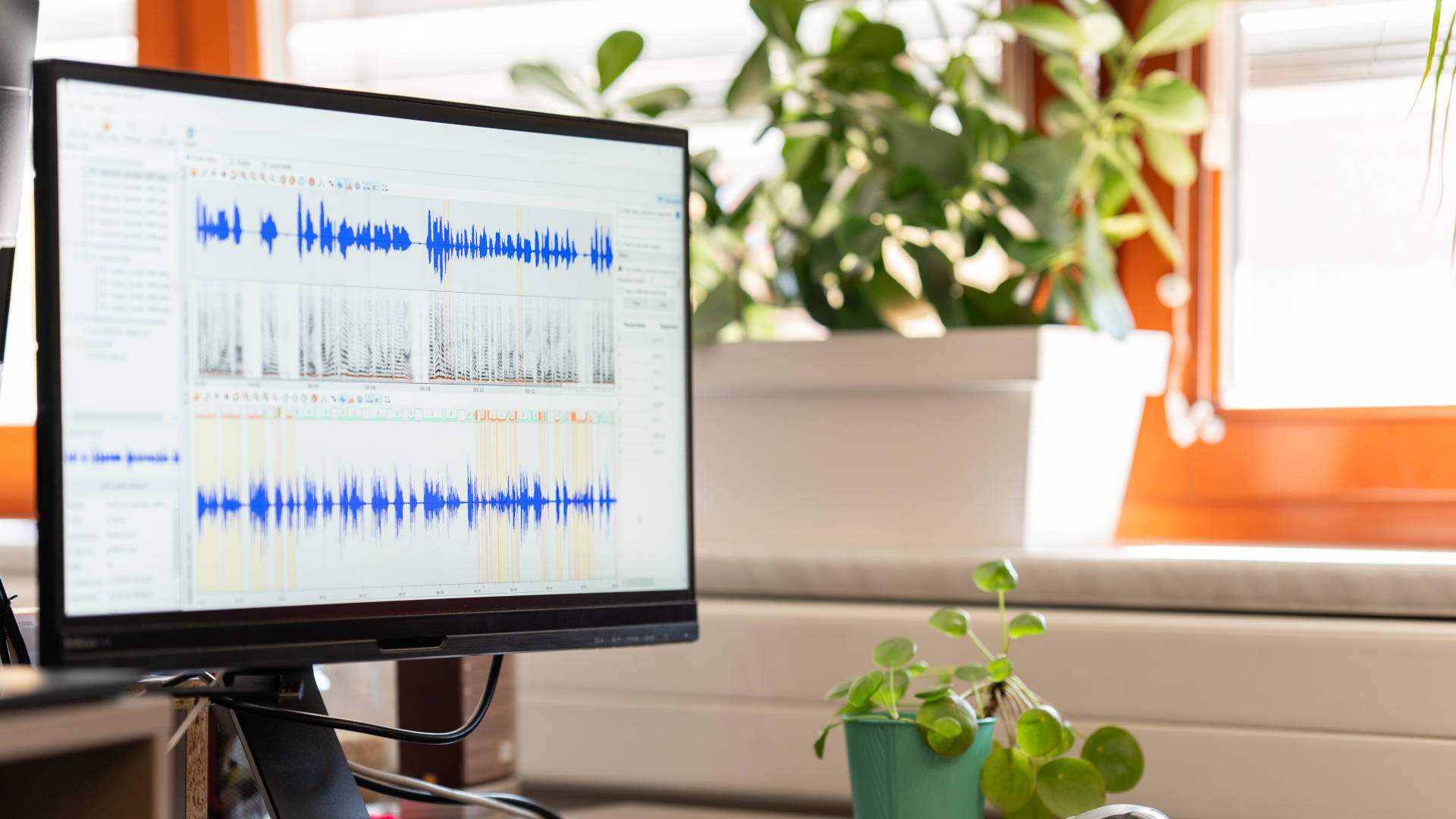Inspiring Applications of Digital Virtual Assistants in Healthcare

July 22, 2022
By Pavel Jiřík in Blog
The number of smart speakers in the US has grown from 47.3 million units in 2018 to nearly 91m in 2021 and is forecast to grow further to 95m units in 2022. Incredible, right?
It would've been hard to believe that having a personal assistant on a mobile phone or inside a home device would be possible not so long ago. Yet, now you can ask Alexa to check the weather or traffic forecasts, order groceries, help kids revise for tests, or read cooking recipes aloud.
But virtual assistants can be even more useful for healthcare patients and doctors. They can use this technology to help patients schedule visits, remind them to take their prescriptions, and keep an eye on patients from a distance.
Let's look at a few examples of how virtual assistants can be used in the healthcare industry for the benefit of both patients and healthcare workers.
How Were Virtual Assistants Used in Healthcare During the Pandemic?
The healthcare virtual assistants market is projected to reach over $5 billion by 2028 from around $600m in 2021. In some way, we can “thank” the Covid-19 pandemic for making the intelligent assistants so popular.
As regular health centers were mostly closed, healthcare workers had their hands full. They had to take care of both people infected with Coronarivus and patients who couldn’t reach their doctors any other way than via phone or video chat.
Whether those patients wanted a prescription for the meds they were taking or simply to ask how to behave in the unprecedented situation, they needed someone to talk to. For this purpose, chatbots turned out to be (literally) a lifesaving technology.
The WHO (World Health Organization) and CDC (Centers for Disease Control and Prevention) used chatbots to provide up-to-date information on the spread of the disease, symptoms, and preventative measures. Intermountain Healthcare in Utah also launched a friendly, interactive Covid-19 Symptom Checker chatbot on their website in 2020 to help patients decide if they should contact a doctor to ask for a test.
Healthcare companies also used chatbots to help people deal with stress, depression, and anxiety through apps such as Wysa. This app uses evidence-based cognitive-behavioral techniques (CBT), meditation, breathing, mindfulness exercises, and micro-actions to help users build mental resilience skills. In 2021, Wysa raised $5.5m in Series A funding to focus on improving employees’ mental health.
And that’s barely the tip of the iceberg in terms of what virtual assistants can do to help (often overworked) healthcare workers.
What Are the Advantages of Using Virtual Assistants in Healthcare?
Thanks to the massive boost in the usage of chatbots, artificial intelligence (AI), and voice search technology, hospitals and clinics can now implement voice-powered virtual assistants to help them with far more tasks than just working as 24/7 information centers. In fact, virtual assistant technology is on track to completely transform our healthcare.
For example, what is currently the biggest problem in healthcare centers worldwide? Mountains of paperwork from noting down everything that patients say during appointments and recommended treatments, to managing the records of admitted and discharged patients, to analyzing patients' health records from other doctors.
Here’s where applications such as Suki come in. It’s a virtual assistant powered by AI and machine learning (ML) that aims to reduce the number of administrative tasks in healthcare, and the time they take. After Suki is connected to an EHR (Electronic Health Record), doctors can use it to create notes from conversations with their patients, make changes by speaking, or pull out any data they need.
According to the platform creators, clinicians using Suki finish their notes an average of 76% faster and thus have far more time left to dedicate to their patients. But besides managing patients' data, there are several other tasks that virtual assistants can help with:
- Scheduling doctor’s appointments and medical procedures, as well as giving patients the chance to cancel or reschedule them.
- Answering any questions that patients might have about their appointments, such as “How should I prepare for my visit?”
- Reminding patients about post-visit or discharge requirements and asking them about the recovery process.
- Shortening visit times by asking patients about their symptoms in advance and passing that information to the doctor.
- Allowing people with chronic illnesses to renew their prescriptions without visiting a health center.
By using virtual assistants to manage all of those tasks for healthcare workers, doctors and nurses will have far more time to care for their patients rather than handling administrative tasks.
Moreover, as virtual healthcare assistants are available 24/7 and will patiently answer questions or doubts as many times as it takes, they are a fantastic tool to ensure that patients know what to do after every visit and ease their worries about health symptoms.
How Can Voice Assistants Help Elderly or Chronically Ill People?
Smart speakers like Alexa might seem like they are intended mainly for younger generations, but, believe it or not, those who can benefit the most from using such devices are actually the elderly, those living alone, and the chronically ill.
The biggest reason why intelligent speakers can be so valuable for those groups is that they only need voice commands to work. There are no tiny touch screens or computer keyboards with which many elderly people struggle - speaking to a smart speaker is enough.
Moreover, a smart speaker can also control other smart devices around the home. This means that people with visual impairments, arthritis, back pain, or any other illnesses that affect how they can use everyday objects are still able to operate many household gadgets like the radio, TV, coffee maker, or thermostat.
Virtual assistants can also help seniors find and remember their daily routines. For instance, if an elderly person says ‘Good Morning’, their virtual assistant can greet them, gently prompt them to take medication, have breakfast, or remind them about a doctor’s appointment, if not just have a chat during breakfast time.
By receiving these reminders regularly, older users can take care of themselves and remain as independent as possible. Having someone to talk to also eases the feelings of loneliness that people living on their own can experience.
Examples of Using Voice Assistants to Help the Elderly or Chronically Ill People
Voice Assistants for Diabetic Patients
According to CDC estimates, roughly 37.3m Americans have diabetes. In Europe, around 61m adults (from 20 to 79 years old) were living with diabetes in 2021 according to the IDF Diabetes Atlas. Keeping track of medication (such as insulin), meals, and blood pressure can be quite challenging though, especially for those recently diagnosed.
Fortunately, there are a lot of apps that people with diabetes can use to manage their illnesses. One example is Sulli the Diabetes Guru from Roche Diabetes Care (makers of the popular Accu-Chek brand glucose meters).
Sulli can answer general questions about diabetes and also provide tips on suitable foods, exercise, medications, glucose monitoring, and healthy lifestyle habits - all by voice control. To reach Sulli the Diabetes Guru, users can simply say to their Amazon Echo, "Alexa, open Sulli the Diabetes Guru”, or to their Google Assistant, "Talk to Sulli the Diabetes Guru".
Another useful application is “WellWithDiabetes”, which works as part of Google Assistant. Users can ask any questions they want about diabetes, from the glycemic index of a product they want to eat to the symptoms of high or low blood sugar. They can even ask the assistant to show them some new recipes to try out.
Amazon Echo’s Alexa Helps Seniors with Dementia
Dementia is an exhausting illness not only for sick elderly people but also for their families and caretakers. Family caregivers can often get frustrated when taking care of their unwell relatives because people with dementia tend to ask questions endlessly, need constant entertainment, keep changing their minds, or get anxious when someone is not around.
While a virtual assistant like Alexa can’t replace a human caretaker, it does have one trait that can make an enormous difference when it comes to caring for dementia sufferers - endless patience. These devices can keep answering questions the entire day, talk about the news, turn the AC on or off, and change the radio station as many times as the user wants, just to name a few examples. Even if someone asks 20 questions about the time or weather, Alexa will patiently respond to all of them.
Using the GG Care (formerly GranGran) Alexa skill, family members or caretakers can also set up reminders and voice tasks for seniors - from letting them know to take their medication or attend appointments, to making sure they have eaten their breakfast and taken a shower.
The only problem is that, since smart speakers are operated by voice and require waking commands, they might not work very well for anyone who has difficulty speaking.
Virtual Assistants for Helping Those with Worsening Eyesight
For those with visual impairments or blind people, a voice-controlled smart speaker can also be an incredibly useful companion because it works as a hands-free device that is controlled by speech. This makes finding information much simpler for visually impaired users, who won’t have to look at a screen or use a keyboard. Instead, they can simply interact with a smart speaker by talking.
Whether they want to tune into their favorite radio station, schedule a doctor’s appointment, turn the lights off, or play an audiobook, intelligent speakers can immediately help users with such tasks.
With a bit of setup, they can even use Alexa, for example, to order a takeaway from a restaurant, call a taxi, or pay their bills through their smart speakers, giving the visually impaired a whole new way to interact with the world.
Improving Healthcare’s Security with Voice Biometrics
Healthcare systems are increasingly replacing their paper-based medical records with digital ones, since they make managing documents and taking care of patients much easier, even at a distance.
For example, what if a patient moves to a different city and wants their medical records to be accessible by the doctors there? With paper records, sharing documentation with a second clinic would be pretty complicated, but digital ones can be shared in a matter of minutes.
However, since a patient’s medical history is very sensitive data that needs to be carefully protected, healthcare centers and clinics must also think about strengthening their cybersecurity if they want to use virtual assistants or online healthcare databases.
Here’s where biometric identifiers such as fingerprints, retina scanners, and voice biometrics are gaining popularity as a way to add an additional layer of security in healthcare. Voice biometrics, which captures and then analyzes a person’s unique speech patterns, is an especially convenient and secure method of verifying a speaker’s identity.
Since voices vary according to the shape of a person’s vocal tract and their speaking style, that makes them unique and nearly impossible to fake. What’s more, modern voice technologies can not only recognize a person’s voice and what is being said but also estimate their age among other things.
There are many cases in the healthcare industry for which this sort of knowledge can be helpful. For example, if you want to give a priority queue to your elderly patients so they won’t have to wait as long.
How Can Voice Biometrics Be Used in Healthcare?
There are two ways in which voice biometrics can be used in health centers. One is to seamlessly verify people who call using voicebots or mobile healthcare apps. Since voice biometrics software can identify a speaker’s voice after only 3 seconds of speech, healthcare assistants and doctors can immediately confirm a caller's identity without having to go through regular verification procedures.
This means that, if someone calls because of an emergency situation, voice biometrics would allow healthcare professionals to quickly access the patient’s medical information and location, saving precious time.
Voice biometrics can be just as useful to protect healthcare databases and online portals where medical records are stored. Healthcare professionals can log in to them using voice verification, which drastically reduces the risk of data breaches, identity theft, or any unauthorized access to doctor-patient records.
Out of the many biometric solutions, voice biometrics is also the most cost-effective solution because it doesn’t require anything besides voice biometric software and a device equipped with a microphone. On the other hand, fingerprint and retina scanners can be pretty costly to set up.
Voice biometrics can also easily work through the phone or the internet. For health centers that want to keep using telemedicine (in the form of virtual assistants, video meetings, or phone calls), voice biometrics is therefore an ideal solution to boost security without making it harder for their patients to reach out.
Conclusion
Digital assistants have the potential to greatly improve the quality and delivery of healthcare to patients. One advantage is that assistants can reduce the strain and workload of healthcare workers by taking over many administrative tasks.
In addition, by gathering information about callers before they reach a doctor (for example, via a symptom checker), digital assistants can also help with making better diagnoses and suggesting the proper treatment for each patient.
To ensure that patients know what to do after a visit or hospital discharge, home or phone digital assistants can remind users to take meds on time and follow up to ask how they are feeling.
Since the health records of patients should be known only to them and their doctors, voice biometrics can also be used to boost healthcare security. A virtual assistant is such a small device, but one that can completely change how healthcare works.


